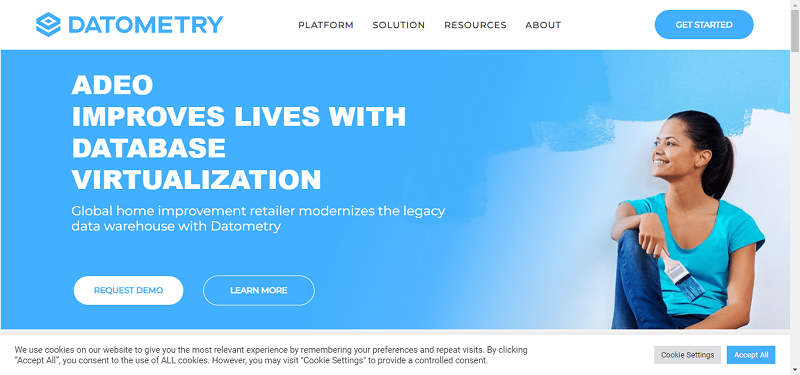With 1.7 million billion bytes of data produced in the world every minute, it is increasingly clear that our brains need to deal with large and complex data sets. The aforementioned figure is the equivalent of 360,000 DVDs – a context that makes it understandable why we might need some assistance.
The European Union is now funding a project – called ‘The Collective Experience of Empathic Data Systems’ (CEEDs) – which they hope will help prevent brain overload. It will work by making use of an interactive system which not only presents data the way users like it, but also changes the presentation constantly in order to prevent fatigue.
The systems works by using an ‘Experience Induction Machine’ (XIM) located in Barcelona to enable users to ‘step inside’ a dataset and participate in an immersive multi-modal environment. It means that its sensors can permanently monitor the person and tailor the system’s reaction according to gestures such as eye movements and blinking frequency, but also physical feedback such as heart rate and breathing rate.
“The system acknowledges when participants are getting fatigued or overloaded with information and it adapts accordingly”, explained Jonathan Freeman, Professor of Psychology at University of London. “It either simplifies the visualisations so as to reduce the cognitive load, thus keeping the user less stressed and more able to focus, or it will guide the person to areas of the data representation that are not as heavy in information”.
The project is already massive and boasts 16 partners in nine countries (Finland, France, Germany, Greece, Hungary, Italy, Spain, the Netherlands and the UK). €6.5 million of EU funding has been invested and as the project grows more funding is likely.
The potential use of the technology is almost limitless – from inspection of satellite imagery and oil prospecting, to astronomy, economics and historical research. There is significant interest from places as diverse as Germany, the Netherlands, the UK and the United States, with museums and shops appearing to be the businesses most likely to implement it.
In fact, CEEDs has already been used for two years at the Bergen-Belsen memorial site in Germany and discussions are ongoing with several museums ahead of 2015’s commemorations for the seventy year anniversary of end of World War II. There is also interest from a major international airport and climate analysis firm in Africa.
“Anywhere where there’s a wealth of data that either requires a lot of time or an incredible effort, there is potential,” added Professor Freeman. “We are seeing that it’s physically impossible for people to analyse all the data in front of them, simply because of the time it takes. Any system that can speed it up and make it more efficient is of huge value”.
What other industries do you think CEEDs could be useful for? Let us know in the comments below.
By Daniel Price





